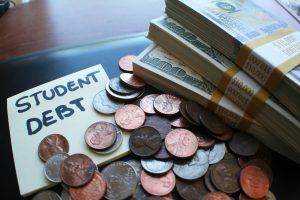
The U.S. Senate Committee on Banking, Housing and Urban Affairs this week approved Sen. Shelley Moore Capito’s (R-WV) bipartisan legislation to give private student loan borrowers in default a fair shot at repairing their credit history.
The panel passed the Economic Growth, Regulatory Relief, and Consumer Protection Act, S. 2155, incorporating a provision based on a bill introduced in May by Capito and Sen. Gary Peters (D-MI), the Federal Adjustment In Reporting (FAIR) Student Credit Act. S. 2155 now moves to the full Senate for consideration.
“Students invest a lot in their education, and we need to do our part to help them maintain a secure financial footing as they pay off loans,” said Capito. “Senator Peters and I have worked together on a solution to help make this possible.”
The provision enables borrowers who default on a private student loan to fix their credit history in the same manner federal student loan borrowers are currently able to do. It does so by allowing private lenders to remove a default from their credit report once the borrower successfully participates in a loan rehabilitation program as prescribed by the private lender. Federal borrowers already have this option. Having a default on their credit report could impede the borrower’s ability for years when they try to get a job, rent an apartment or buy a house, or purchase a car.
“Students who invest in their education and career by taking out private student loans deserve the chance to recover from a default without permanently damaging their financial future,” Peters said.
The provision from Capito and Peters equals the opportunity for private loan defaulter to participate in a one-time student loan rehabilitation program. The loan rehabilitation program involves completing a series of on-time loan payments as approved by the private lender. The private lender would then have the ability to delete this default. Currently, these private lenders are only able request corrections to borrowers’ credit reports if there is an inaccuracy.
Although 90 percent of higher education loans are public and therefore eligible for loan rehabilitation, private student loans currently total $9.9 billion, with more than 850,000 private student loans in default, according to the Consumer Financial Protection Bureau.



